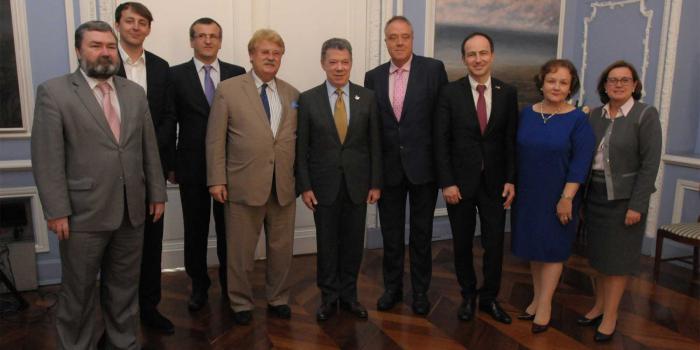
European parliamentarians learned about the reparations process in Colombia
The Victims Unit presented the work developed in terms of collective reparations to more than 300 groups and communities and compensation to more than 600,000 people, among other topics.

A European Parliament delegation learned Friday in Bogota about the process of reparations to victims of the armed conflict in the country. In a meeting with the deputy director of the Unit for the Victims, Viviana Ferro, seven parliamentarians expressed the importance of moving forward on the path of reconciliation.
During his stay in Colombia, politicians said they are precisely the victims who must be at the heart of the process to bring an end to the armed conflict and to build a stable and lasting peace, including elements of truth, justice and reparation.
"A peace agreement resulting from negotiations between the Colombian government and FARC rebels would be a unique opportunity to end more than 50 years of armed conflict in Colombia. The European Parliament strongly supports the efforts of peace. We encourage both parties to complete negotiations as soon as possible," said Elmar Brok, chairman of the Committee on Foreign Affairs of the European Parliament.
Countries like Sweden and Spain, among others, are supporting initiatives on care, participation and reparation for victims who work together with the Unit for the Victims in different regions of Colombia. "The Colombian government has taken responsibility by repairing in the midst of conflict and, in this task, it has received support, especially technical and political, from the international community," said Viviana Ferro, vice-director of the entity.
The event was also attended by Paula Gaviria, presidential adviser for Human Rights, and Joshua Mittroti, director general of the Colombian Agency for Reintegration. The European delegation was composed of Elmar Brok, Laima Liucija Andrikienė, Andrey Kovatchev, Cristian Dan Preda, Richard Howitt, Javi Lopez and Karol Karski.






